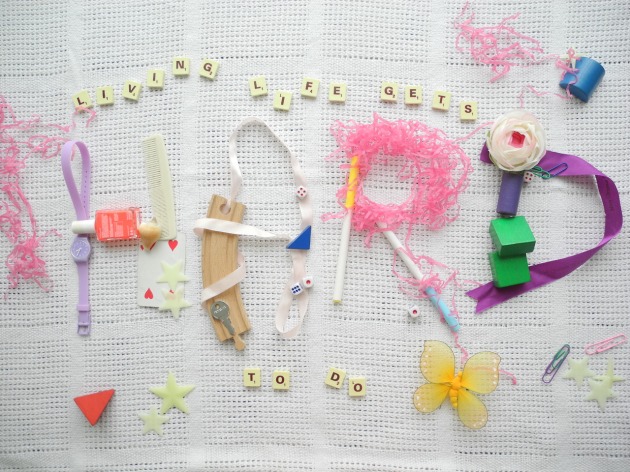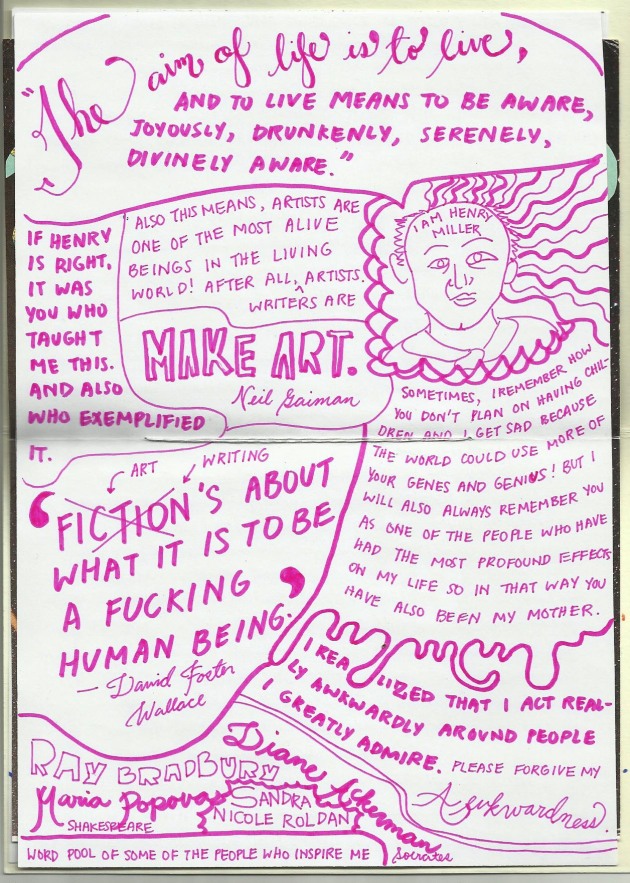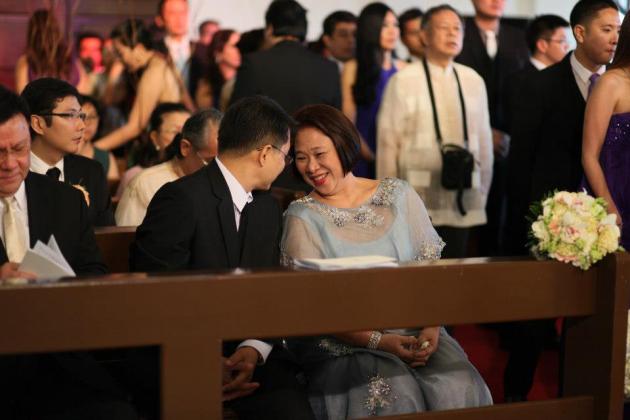
from National Geographic, Photograph by Marko Savic
“In a hidden street I found this cafe. It looked like a scenography for some movie. I loved the atmosphere and the pictures on the wall. The lighting was really dramatic, and the man with the cigar was in just the right place.”
Here I am, sharing my exam answers in the blogosphere! I’m going to leave for Pagudpud, Ilocos Norte tonight, where there will be no access to internet, until the end of holy week. I didn’t want to end March without me posting at least one thing of relevance! Here is what I have come up with for the past busy month full of exams, papers and preparation for an awesome dance concert.
For our final exam in my Philosophy class, we were asked:
1. Is life meaningful? Defend.
Before I answer this question, I must first do my best to define meaning and life.
Does this paper have meaning? To a three-year-old child who finds this in the quest for something to draw on, it is a canvas for his or her imagination. To a pet lover walking his or her dog around a village and finds this paper while the dog is performing acts of cleansing, this paper will serve as something to keep the streets free from dog litter. But hopefully, to Sir Caslib and others who will read the letters and words that have been printed on this paper, this paper holds a good argument to prove that life is meaningful.
The Oxford American Writer’s Thesaurus says meaning is synonymous with significance, sense, value, usefulness, and worth. Meaning is made and created. Meaning is not an intrinsic quality of any object, or even any person. Meaning is fluid and arbitrary, it is something people decide to give or act on. Meaning-making is a human activity. As such, individuals have the power to give or withdraw meaning to or from anything, which is why the meaning of this paper changes for each person who finds it.
Since life is trickier to capture, let me share this anecdote from David Foster Wallace’s Kenyon Commencement Address called “This Is Water”.
There are these two young fish swimming along and they happen to meet an older fish swimming the other way, who nods at them and says “Morning, boys. How’s the water?” And the two young fish swim on for a bit, and then eventually one of them looks over at the other and goes “What the hell is water?”[1]
This is water; this is life. In academic institutions, we often say schooling is preparation for real life. Is this not real enough for you? We get so caught up in the whirl of school and business we forget we are already living! We are in the midst of life. Life might just pass us by too quickly if we don’t take notice of it.
Like everything else in the entire universe, life, intrinsically, has no meaning. But, since, as human beings, we have the unique ability and natural tendency to give things reasons to exist, to seek answers for all our whys, we are what make life meaningful. So is life meaningful? It is, if you decide to make it so. Joseph Campbell said, “Life has no meaning. Each of us has meaning and we bring it to life. It is a waste to be asking the question when you are the answer.” Stephen Jay Gould, a science writer, agrees with John Campbell. He ruminates on life’s meaning through elaborating on the chances of having human life in the universe.
“The human species has inhabited this planet for only 250,000 years or so-roughly.0015 percent of the history of life, the last inch of the cosmic mile. The world fared perfectly well without us for all but the last moment of earthly time–and this fact makes our appearance look more like an accidental afterthought than the culmination of a prefigured plan.*
Moreover, the pathways that have led to our evolution are quirky, improbable, unrepeatable and utterly unpredictable. Human evolution is not random; it makes sense and can be explained after the fact. But wind back life’s tape to the dawn of time and let it play again–and you will never get humans a second time.
We are here because one odd group of fishes had a peculiar fin anatomy that could transform into legs for terrestrial creatures; because the earth never froze entirely during an ice age; because a small and tenuous species, arising in Africa a quarter of a million years ago, has managed, so far, to survive by hook and by crook. We may yearn for a ‘higher’ answer — but none exists. This explanation, though superficially troubling, if not terrifying, is ultimately liberating and exhilarating. We cannot read the meaning of life passively in the facts of nature. We must construct these answers ourselves — from our own wisdom and ethical sense. There is no other way.*“[2]
This begs the question, so, what is the meaning of life? The three Greek Philosophers, Socrates, Plato and Aristotle, agree that virtue is something all humans should aim to have. They define virtue as excellence of function, this means fulfilling one’s purpose to one’s fullest capacity. Therefore, the meaning of life is living to one’s whole capacity. Being alive means being totally aware. Notice life, see the water, taste it, savor it, make love to it! Life is meant to be lived and to live fully means to have a full taste of all the facets of life. Aristotle also speaks about telos. the ultimate why or reason for being of an individual. He describes entelechy, which is the innate, natural drive in each individual to achieve telos. For humanity, that telos is eudaimonia. It is a full awareness of life by a fully functioning individual.
Henry Miller said much of the same thing in this beautiful and poetic quote.
“Strange as it may seem today to say, the aim of life is to live, and to live means to be aware joyously, drunkenly, serenely, divinely aware.* In this state of god-like awareness one sings; in this realm the world exists as poem. No why or wherefore, no direction, no goal, no striving, no evolving. Like the enigmatic Chinaman one is rapt by the everchanging spectacle of passing phenomena. This is the sublime, the a-moral state of the artist, he who lives only in the moment, the visionary moment of utter, far-seeing lucidity. Such clear icy sanity that it seems like madness. By the force and power of the artist’s vision the static, synthetic whole which is called the world is destroyed. The artist gives back to us a vital, singing universe, alive in all is parts.*“[3]

Living life gets hard to do. Sunday Morning Lyrics. Art by Janelle P.
2. What makes love figure in the existential question of the meaning of life?
I have just talked about eudaimonia and the meaning of life. If eudaimonia is a full awareness of life by a fully functioning individual, where does love figure in it? Let me clarify now that when I speak of love, I speak not only of eros, but of love for family and friends and love for a passion, dream or advocacy as well, because while some manifestations of these different kinds of love may be different, they are all united in their main purpose. Love seeks to unite two individuals, may they be things, ideas or people.
Here is a poem that perfectly encapsulates this quality of love.
“Wondrous the Merge”
by James Broughton
Wondrous Wondrous the merge
Wondrous the merge of soulmates
the surprises of recognition
Wondrous the flowerings of renewal
Wondrous the wings of the air
clapping their happy approval
* * *
I severed my respectabilities
and bought a yellow mobile home
in an unlikely neighborhood
He moved in his toaster his camera
and his eagerness to become
my courier seed-carrier and consort
Above all he brought the flying carpet
that upholsters his boundless embrace
Year after year he takes me soaring
out to the ecstasies of the cosmos
that await all beings in love
One day we shall not bother to return
Based on Sir Caslib’s lectures, I have gathered that, according to Plato, people love because we desire to possess what’s beautiful and we desire it to last forever. In other words, people want to become better. And in an act of loving, we do become better. We expand our consciousness; we think outside of ourselves. So initially, what started out as a selfish reason to possess something that is good and beautiful becomes selfless because we start doing things for somebody or something that we love; in effect, we broaden our perspective of the world and of life. Love is a selfish choice that enables selfless giving.
When we love a friend, we do favors for them, we share stories with them, and we connect with them. When we love a special person, we do the same and even more because the sense of oneness is actualized in an act of making love. When we love an idea or are passionate about something, we focus our attention on it and see things in light of that love and naturally want to protect that love, so we are moved towards action to make sure it is preserved. Honestly, you can interchange the things I just said. All three are really interconnected and so fluid in their characteristics.
This expansion of the self when loving was described beautifully in Carljoe Javier’s essay, “The Grammar of Love”, in Wagas.
“In an act of love time dilates and we are, through loving, able to expand the universe, making it seem as if this one moment were a moment that could be held and stretched across time.…*
Performing acts of love allows us to expand our hearts, our selves, and the entire universe.* The act of loving allows us to connect, to transcend physical barriers and emotional turmoil. And in this we create a space in the universe, wholly our own, and shared only with the person we share this creation with….”[4]
No matter what kind of love you have in your life, the most beautiful thing about love is how it is simply uniting two individual things or people. It is a unity, a merging, something almost Buddhist and Daoist about how everything is one and the same. And perhaps, that is the natural human state–connection, unity, belongingness, acceptance, embrace, universality–which is why, I believe, loving is the paradigmatic manifestation of being human.
Being fully alive and aware is actualized in the act of loving because when we love, we risk our entire self, our time, our effort, our minds, our well being in our act of expansion for the receiver of our love. One of my favorite professors in the university, Ma’am Liway Ruizo, writes in Wagas,
“This is where I shall dare venture into the dangerous waters of theorizing:
That true love is for the brave. *
It is not for the tentative, the sacred. It is for the bold, the heroic, and yes, the reckless. It is not for those who are constantly afraid of heartbreak, who by reflex, are protective of themselves. It is not for those who have the habit of folding when confronted with the risk of losing it all. Not for those who are more fearful of rejection, than the regret that comes with not trying….
We embrace despite the fear of wounding ourselves with the thorns that they put up. We take them and let them in, these people we love, fully aware of the danger that they might not choose to stay.* We welcome them into our homes, our lives, when they just might rob us of what little we have, and leave a gaping space where they once were. We dare to make them feel what we really want them to feel, even when it might not be reciprocated. We partly, or wholly, relinquish our conditions and checklists, for the sake of making them feel that we love them for who they are, and not for who we wish they’d be.”[5]
Loving is living life with arms outstretched like our legendary Oblation. Love strips you of all your facades and leaves you naked and vulnerable. Loving is the only way to live life fully! When we love, that is when we fully open ourselves up to life and experience all its sorrows, joys, disappointments, mundanities and silliness in their purest essence. And yes, it is terrifying, it can be boring, it can be exciting, and it will hurt, but as Ma’am Ruizo ends her essay, “…the only other thing more terrifying than truly loving, is the going without.”5

from Brandon, creator of Humans Of New York blog
“I do yoga to get energy from the air.”
[1] Wallace, David Foster. This Is Water: Some Thoughts, Delivered on a Significant Occasion, about Living a Compassionate Life. New York City: Little, Brown and Company, 2005.
[4] Javier, Carljoe. “The Grammar Of Love.” In Wagas and other tales, talks and takes on love, by Bernardo N. Caslib and Liway Czarina S. Ruizo, 90-91. Quezon City: Central Book Supply Inc., 2012.
[5] Ruizo, Liway Czarina S. “Terrified.” In Wagas and other tales, talks, and takes on love, by Bernardo N. Caslib and Liway Czarina S. Ruizo, 113-114. Quezon City: Central Book Supply Inc., 2012.
*bold and italics are all mine.











